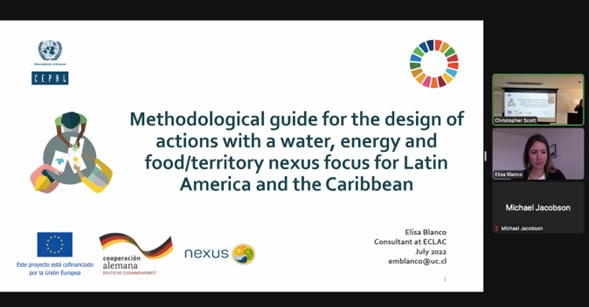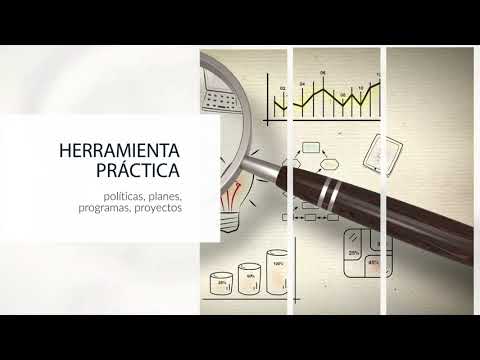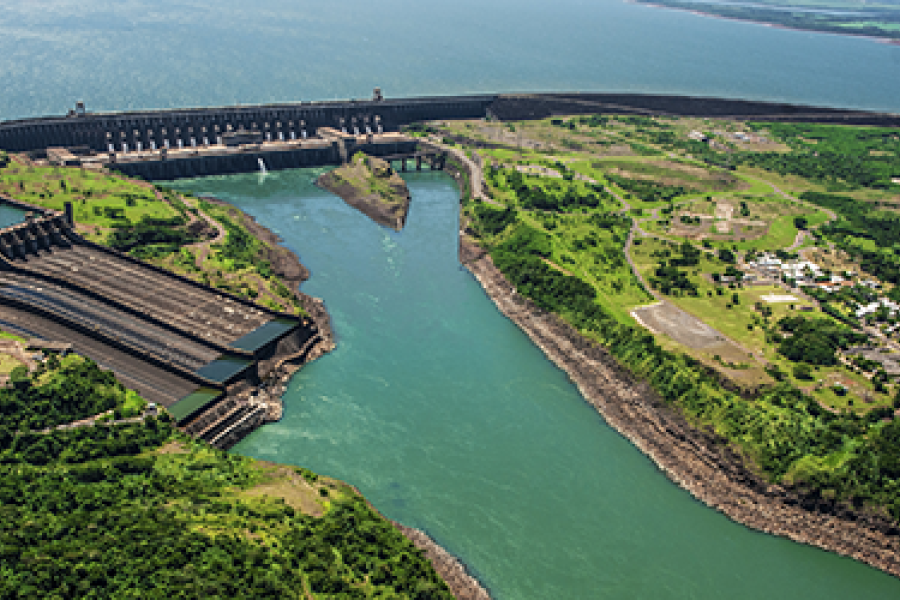ECLAC was part of the workshop of the Colombia-USA Water, Energy and Food Nexus Alliance, presenting the Methodological Guide for the design of policies with this approach
Work area(s)
Teaser
The event was held in a hybrid format, face-to-face and virtual in Bogotá, Colombia. It counted with the participation and support of the Pennsylvania State University together with the Tadeo University, the National University of Colombia, the Javeriana University and the Stockholm Environment Institute (SEI) through its offices in Latin America. All of them are part of the Alliance.
Event information

Date
15 Jul 2022 - 08:20Event type
The Colombia-USA Water, Energy and Food Nexus Alliance seeks to be a platform to build and sustain a community of researchers, provide technical infrastructure, coordinate partnerships and engagement, integrate education at different levels, and support a targeted communication strategy in the Western Hemisphere. Research conducted under the Alliance emphasizes in renewable energy, agricultural development, river basin resilience, and biodiversity and natural resource conservation as solutions to some of the most pressing problems Colombia, Latin America, and the world are facing. The Alliance serves as a unifying umbrella for academic researchers, industry representatives, civil society, and policy makers. Integrating efforts across institutions allows researchers to better collect and analyze primary data, create and apply predictive and scenario planning models, and develop and disseminate best practices for more effective program implementation.
In this context, throughout the week of the workshop, on Friday, July 15, a panel was held focused on the problem of how to integrate the Nexus approach into the policies developed in the region. The conference was opened by Siela Maximova, who in addition to being director of Penn State Global for Latin America and the Caribbean, is a professor in the Department of Plant Science at Pennsylvania State University. Then, the panel was moderated by Roberto Villalobos, professor at the Faculty of Agricultural Sciences of the National University of Colombia. In addition to having the ECLAC consultant, Elisa Blanco, the panel included the participation of Marcela Andino, advisor to the Water Authority of the Province of Mendoza, and Michael Jacobson, Professor of the Department of Ecosystem Sciences and Management, of Penn State University.
Here, Elisa Blanco from ECLAC presented the "Methodological Guide for the design of actions with a water, energy and food Nexus approach for Latin America and the Caribbean countries". This guide consists of a practical tool that will support the countries of the region in the adoption and evaluation of the Nexus in the policies, plans, programs and projects of the water, energy, agriculture, and environment sectors. In addition to presenting the methodological tool, its practical application was presented through the experience of different Latin American cases. Finally, a space for questions was opened, in which it was possible to stablish a debate regarding the relevance of having scientific evidence to show the benefits of implementing policies with a Nexus approach in the region.

